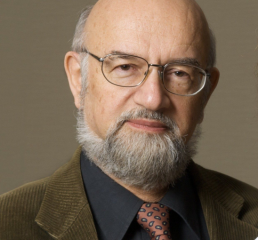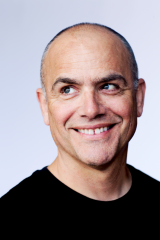People from around the globe with a shared interest in sustainability, conservation and stewardship of the environment will converge this weekend at the University of Wisconsin Oshkosh, as the 25th International Symposium for Society and Resource Management (ISSRM) gets underway June 2.
 Sustainability and the Land Ethic in the Anthropocene: ‘A Thinking Community’ Explores Critical Issues in Leopold’s Backyard, is the theme of the week-long symposium, co-hosted by the UWO Sustainability Institute for Regional Transformations and the University’s sociology department.
Sustainability and the Land Ethic in the Anthropocene: ‘A Thinking Community’ Explores Critical Issues in Leopold’s Backyard, is the theme of the week-long symposium, co-hosted by the UWO Sustainability Institute for Regional Transformations and the University’s sociology department.
The event is expected to bring hundreds of environmental and natural resource professionals and scholars to the UWO campus for a series of speakers, meetings and field trips.
“Our hope is to foster a rich exchange of ideas with people from around the world. We hope participants learn things that can be applied to issues related to humans and their environments in the places they’re from, that they’ll make new connections leading to collaboration and ongoing relationships and that everyone discovers what great places UWO and Oshkosh are and have a great time here,” said Paul Van Auken, UWO sociology department chair.

ISSRM will include a number of discussions at UWO’s Sage Hall and plenaries—major talks and panels that all participants will attend—and receptions in the Culver Family Welcome Center (formerly Alumni Welcome and Conference Center). Field trips are planned to sites in the region and a conference picnic is set for Leach Amphitheater in Oshkosh.
The symposium continues through June 7.
“Our keynote speakers and presenters will all be offering different takes on this question (What should people be thinking about when it comes to the environment and the way people interact with the earth?) from the most global, macro level to the most local, micro level,” Van Auken said. “That’s what makes it so exciting. But it all starts with recognizing that there are actually no environmental problems, but rather human problems that create environmental consequences and then realizing that we need to work at all these different scales to take systematic, concrete action now.”
Discussions open to public
 Several conference events (three plenary keynotes/panel and a documentary film screening) will be open to the public. The three plenaries are at Culver Family Welcome Center, 625 Pearl Ave.
Several conference events (three plenary keynotes/panel and a documentary film screening) will be open to the public. The three plenaries are at Culver Family Welcome Center, 625 Pearl Ave.
Monday, June 3
8 a.m. Welcome ceremony from Menominee Nation leaders.
8:30–9:45 a.m, keynote plenary by Fikret Berkes on Building Adaptive Capacity for Change: Indigenous Knowledge and Science Partnership. Cost is $5 cash for those not registered for the conference.
Tuesday, June 4
8–10 a.m., plenary panel on Indigenous Perspectives of People and Place in the Great Lakes Region: Looking Beyond Leopold’s Backyard, facilitated by partners at the Sustainable Development Institute at College of the Menominee Nation. Free, due to sponsorship by Community Foundation of the Fox Valley.
 7 p.m., special screening of Green Fire, a documentary about Aldo Leopold, with introduction by/discussion with Curt Meine, Leopold biographer. Event is at Time Theater in downtown Oshkosh. Cost is $5 cash for those not registered for the conference.
7 p.m., special screening of Green Fire, a documentary about Aldo Leopold, with introduction by/discussion with Curt Meine, Leopold biographer. Event is at Time Theater in downtown Oshkosh. Cost is $5 cash for those not registered for the conference.
Wednesday, June 5
8:30–9:45 a.m., Keynote plenary from NY Times-bestselling Wisconsin author, Michael Perry, entitled: “Displacing Place,” a humorous and heartfelt examination of place, privilege and the unpredictable power of landscape. Cost is $5 cash for those not registered for the conference.
Learn more:
